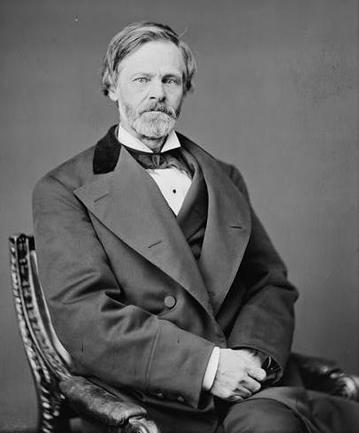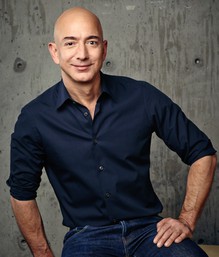Capture the flag
 Earlier this week, at BoingBoing, Cory Doctorow alerted us all to the existence of a lengthy Yale Law Journal article by Lina M. Khan that discusses the last half-century of the operation of US antitrust law (aka the Sherman Act) using Amazon as an example case. The tl;dr: where antitrust law originally sought to balance market power, in current interpretation, influenced by the Chicago School of economics, it focuses narrowly on pricing and profits, and fails to consider broader impact on workers, creators, competitors, and society at large. Khan is a third-year law student and a fellow with the Open Markets group - the one the headlines say was dumped by the New America Foundation for being welcoming of the EU's fining Google. Numerous people cite reasons to believe pressure was applied.
Earlier this week, at BoingBoing, Cory Doctorow alerted us all to the existence of a lengthy Yale Law Journal article by Lina M. Khan that discusses the last half-century of the operation of US antitrust law (aka the Sherman Act) using Amazon as an example case. The tl;dr: where antitrust law originally sought to balance market power, in current interpretation, influenced by the Chicago School of economics, it focuses narrowly on pricing and profits, and fails to consider broader impact on workers, creators, competitors, and society at large. Khan is a third-year law student and a fellow with the Open Markets group - the one the headlines say was dumped by the New America Foundation for being welcoming of the EU's fining Google. Numerous people cite reasons to believe pressure was applied.
Both Khan's original 24,000-word, accessibly-written article and Doctorow's discussion of it are worth reading. Khan lays out clearly many, often unconsidered, aspects of Amazon's dominance: it is the biggest single player in online retail; it is a force in book publishing; it is building its own delivery network that critics fear will eventually bypass UPS and Fedex; its Marketplace infrastructure allows it insight into smaller competitors' businesses; and it owns the infrastructure on which many other internet businesses - including Netflix - rely.
 Most important, as Khan writes, all those activities have produced huge piles of data Amazon can leverage to push its way into further sprawl. At one time, investors were concerned that Marketplace would divert customers away from Amazon's own offerings; I remember seeing in an annual report that to Amazon's bottom line the transactions were of equal value. That calculation is more or less what Khan is complaining about: the same dollars and cents accrued, but no one valued the data it collected from all those small sellers' transations. The result, Khan finds, is that Amazon has developed its own retail lines by cherry-picking Marketplace successes. No muss, no fuss, no risky maybe-this-is-a-good-idea. Netflix selects its original content the same way: unlike traditional broadcasting, it knows what people actually watch instead of what people want others to think they watch.
Most important, as Khan writes, all those activities have produced huge piles of data Amazon can leverage to push its way into further sprawl. At one time, investors were concerned that Marketplace would divert customers away from Amazon's own offerings; I remember seeing in an annual report that to Amazon's bottom line the transactions were of equal value. That calculation is more or less what Khan is complaining about: the same dollars and cents accrued, but no one valued the data it collected from all those small sellers' transations. The result, Khan finds, is that Amazon has developed its own retail lines by cherry-picking Marketplace successes. No muss, no fuss, no risky maybe-this-is-a-good-idea. Netflix selects its original content the same way: unlike traditional broadcasting, it knows what people actually watch instead of what people want others to think they watch.
Companies like AT&T, Standard Oil, and the Hollywood studios got broken up for less.
For me, Khan's analysis explains a lot: it answers critics who insist that the EU is wholly animated by obstructive nationalism. The EU may also be nationalist, but the principles it's applying are ones that the US has progressively abandoned. In that sense, although the EU's choice of target, Google's shopping search seemed quirky and somewhat out-of-date, the idea was not necessarily wrong.
Amazon is chiefly providing fodder for Khan's main point, which is that the school of thought inspired by failed Supreme Court nominee Robert Bork's book The Antitrust Paradox has made American antitrust practice ill-equipped to deal with today's technology titans. This was less true 20 years ago, when the US Department of Justice went after Microsoft for leveraging Windows 95 to force people to use Internet Explorer.
Fifty years ago, when IBM was investigated by the antitrust authorities, the company was ordered to unbundle its software and services from its hardware. Thirty-five years ago, when AT&T was broken up, the company was split between local service provision (the seven Baby Bells, which have since coagulated back into three, and long distance services. The arrival of the internet then up-ended everything. Twenty years ago, when the Microsoft case was being decided, there was a lot of talk: should Microsoft be broken up into operating systems (in that scenario, the equivalent of pipes) and office software (the equivalent of content)? The internet, Google, open source software, and smartphones utterly changed that landscape. Since then, it may have seemed reasonable to think that we only had to wait for two guys in a garage to up-end any or all of GAFA.
But AT&T could have blocked the consumer internet by continuing to refuse to allow the connection of third-party phone equipment to phone lines. IBM might have sought to control microcomputer design. In all these cases, innovation hasn't up-ended older players until some limitations have already been placed upon them and they've known they were under scrutiny. As Khan's analysis suggests, giddy optimism that new technological breakthroughs will make regulatory intervention unnecessary is misplaced.
Google's moment of truth arrived this year, when the EU issued its monster fine. Facebook, too, is finding the EU attentive: it was fined $122 million for misleading regulators in its acquisition of (former) competitor WhatsApp. Despite widespread disquiet over Amazon's various disputes with publishers, so far Amazon has escaped, yet it's arguably been the most successful of the lot in burrowing its way deep into the internet infrastructure.
 I have come to think in terms of capturing gateways that control our access to the internet, media content, social relationships, real-world navigation, and so on. Amazon, all the over >there< by itself using shopping, has looked to be outside the fray. GAFA's strategies are known. Amazon is capturing - look, ma! no advertising - an entire business landscape, rather like Uber, by exploiting investors' willingness to provide it with the cash to finance the whole thing. We've had a nice long run with its cheap prices - now coming to a Whole Foods near you. But predators always get us in the end.
I have come to think in terms of capturing gateways that control our access to the internet, media content, social relationships, real-world navigation, and so on. Amazon, all the over >there< by itself using shopping, has looked to be outside the fray. GAFA's strategies are known. Amazon is capturing - look, ma! no advertising - an entire business landscape, rather like Uber, by exploiting investors' willingness to provide it with the cash to finance the whole thing. We've had a nice long run with its cheap prices - now coming to a Whole Foods near you. But predators always get us in the end.
Illustrations: John A. Sherman; Lina Khan; Jeff Bezos.
Wendy M. Grossman is the 2013 winner of the Enigma Award. Her Web site has an extensive archive of her books, articles, and music, and an archive of earlier columns in this series. Stories about the border wars between cyberspace and real life are posted occasionally during the week at the net.wars Pinboard - or follow on Twitter.